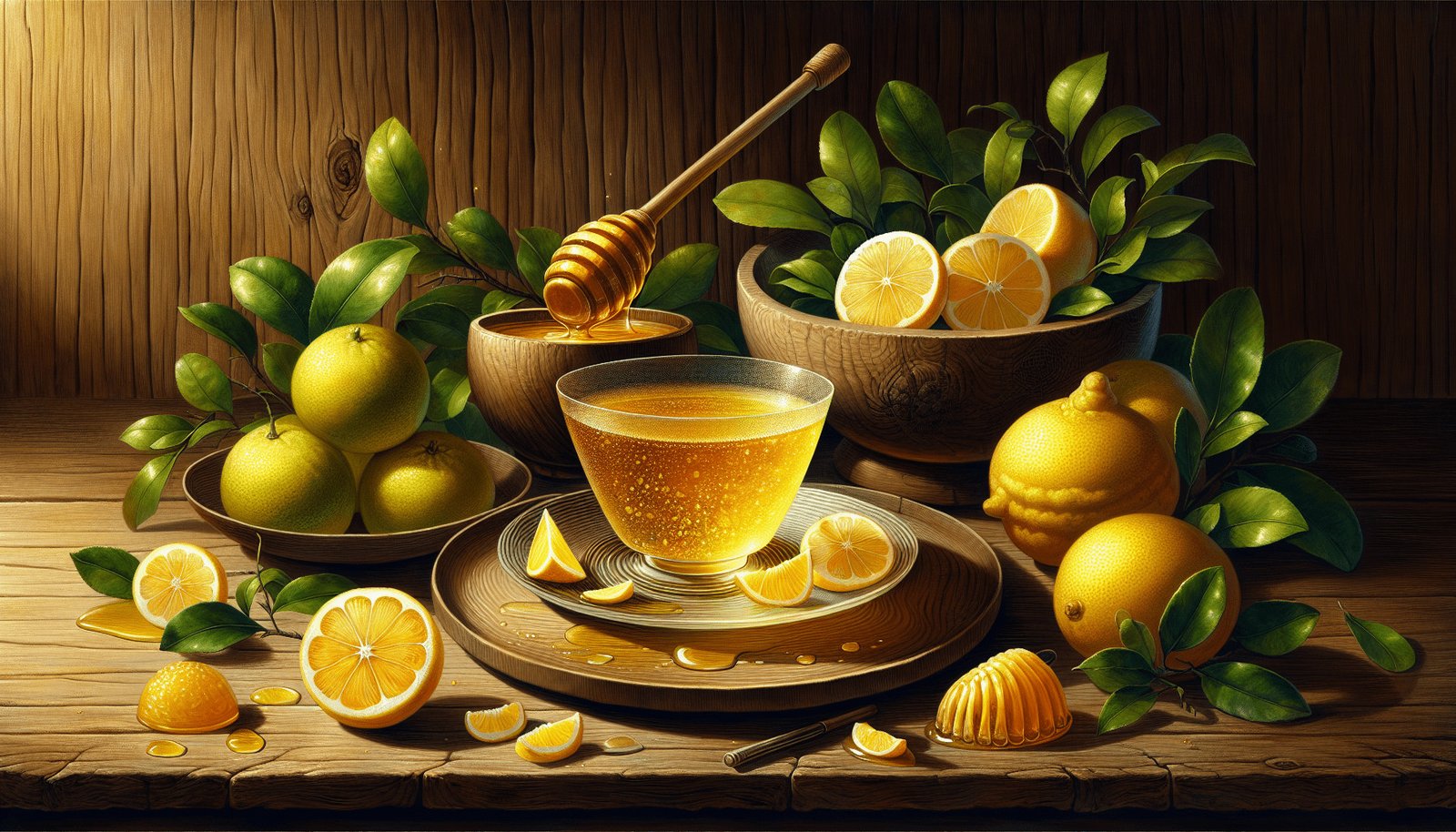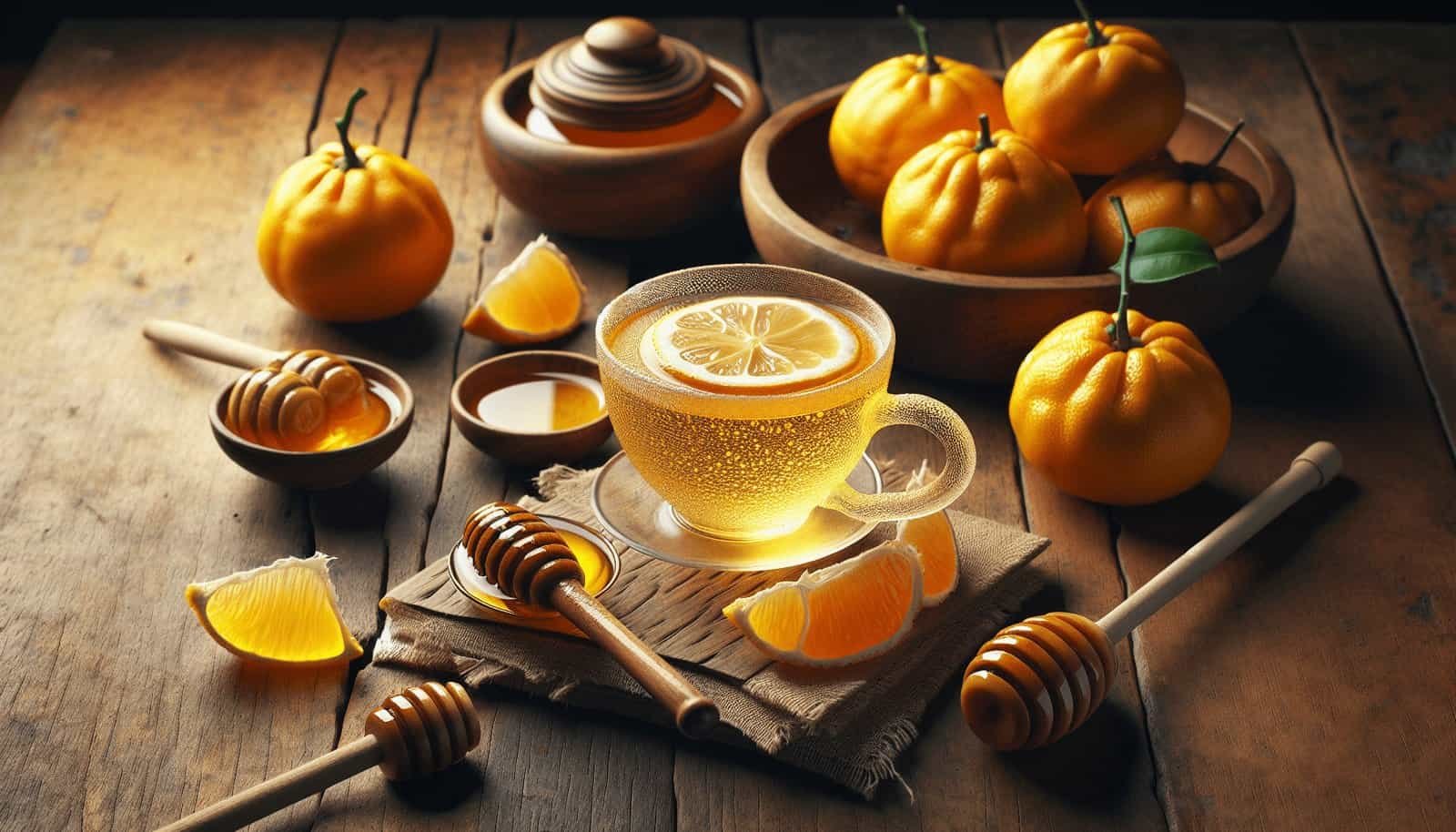Have you ever wondered how the delightful traditional Korean honey citron tea, also known as yujacha, is both made and enjoyed? This heartwarming beverage, often enjoyed during cold seasons, carries with it the essence of Korean tradition and comfort. Let’s journey together to uncover the secrets of brewing this exquisite tea and explore the various ways it is savored.
What is Yujacha?
Yujacha is a traditional Korean tea made from yuja fruit—commonly known as citron—combined with honey or sugar. It is not an ordinary tea in the sense of herbs steeped in boiling water, but rather a marmalade-like syrup that dissolves into a deliciously sweet and tangy drink. The flavor is distinct and refreshing, brightening cold winter days with its citrus notes.
The Origins of Yujacha
The origins of yujacha are deeply rooted in Korean culture, where the yuja fruit was introduced from China during the Tang Dynasty. This citrus fruit, rich in vitamin C, has long been valued for its potential health benefits. The combination of honey and citron in yujacha not only makes for a comforting drink but also embodies the long-standing tradition of natural remedies in Korean households.
Ingredients Needed for Yujacha
To make yujacha, you will need a few essential ingredients. Although there are variations, the primary components remain the same. Here’s what you will need:
| Ingredient | Description |
|---|---|
| Yuja (Citron) | The star of the show, yuja is a citrus fruit known for its aromatic rind and tangy juice. |
| Honey | Traditionally used for its sweetness and health benefits, alternatively, sugar can be used. |
| Water | Used to mix with the yuja-honey mixture to make the tea. |
Choosing the Right Yuja
Selecting high-quality yuja is crucial for making delicious yujacha. The fruit should be firm with a pleasing aroma. A blemish-free rind indicates freshness, essential for imparting the best flavor to your tea. If you can’t find fresh yuja, you might opt for bottled yuja products found in Korean markets.

Preparing Yujacha at Home
Creating yujacha is an art that blends patience with precision. The process involves preparing the yuja and combining it with honey to create a syrup that serves as the tea base.
Step-by-Step Guide
Cleaning the Yuja: Start by thoroughly washing the yuja fruit. This step is vital to remove any pesticide residues and to prepare the rind for use.
Slicing and Juicing: Slice the yuja thinly—rind, pulp, and all—discarding any seeds that could add bitterness. Squeeze any excess juice from the yuja sections to use later.
Mixing with Honey: In a large mixing bowl, combine the yuja slices and juice with honey at a 1:1 ratio. Stir well until the mixture is homogenous.
Fermentation and Storage: Transfer the mixture into airtight glass jars. Let it sit at room temperature for a day before refrigerating it. This allows the flavors to meld wonderfully. The mixture can be stored for several weeks.
Tips for Perfect Yujacha
Consistency and patience are key when making yujacha. Ensure that the juicer is free from seeds, as any residual bitterness can affect the final taste. Be generous with the stirring to ensure that the honey and citron meld into a smooth mixture.
Enjoying Yujacha
Now that you’ve crafted this delightful beverage, it’s time to enjoy it. Yujacha isn’t just a drink—it’s an experience that can be enjoyed regardless of the season.
Serving Suggestions
Hot Yujacha: Add a few spoonfuls of the yuja-honey mixture to a cup of hot water. Stir until it dissolves completely. This is perfect for warming up during the colder months.
Iced Yujacha: On warmer days, try adding cold water and a handful of ice cubes for a refreshing twist.
Yuja Marmalade Spread: The mixture can also double as a marmalade. Spread it over toast or pancakes for a zesty start to your day.
The Cultural Experience
In Korea, yujacha is more than just a tea—it’s a way to connect with friends and family. Sipping yujacha during gatherings or by the fireplace can bring people together and foster moments of warmth and laughter.

Health Benefits of Yujacha
Yujacha is known not just for its delightful taste but also for its potential health benefits.
Nutritional Aspects
- Vitamin C Powerhouse: Yuja is extremely rich in vitamin C, essential for boosting your immune system and fighting off colds.
- Antioxidants: The tea provides a good dose of antioxidants, which are helpful in maintaining good health by combating oxidative stress.
Immune-Boosting Properties
The combination of honey and yuja acts as a natural remedy for soothing sore throats and enhancing immunity. Honey is known for its antibacterial properties, making it effective in soothing ailments.
Modern Twists and Alternatives
While traditional yujacha remains popular, modern variations and twists have arisen, inspired by the classic recipe.
Variations You Can Try
- Yuja Green Tea: Add a touch of green tea for a modern take on the traditional flavor.
- Sparkling Yujacha: Mix with carbonated water for a fizzy refreshment.
- Herbal Infusions: Incorporate herbs like mint or ginger for an added layer of flavor.
Where to Buy Yujacha
If making yujacha at home isn’t for you, numerous stores offer ready-made versions.
Choosing a Store-Bought Brand
When purchasing yujacha, look for brands that use high-quality ingredients, especially honey and authentic yuja. Check labels for added sugars or preservatives that might alter the traditional taste.
Frequently Asked Questions
Let’s address some common questions you might have about yujacha.
Can I use other sweeteners besides honey?
Certainly! While honey is traditional, you can substitute it with sugar or even agave syrup if you prefer a different level of sweetness.
How long does yujacha last?
Stored properly in a refrigerator, yujacha can last for several months. Ensure that the jar is airtight to maintain its freshness.
Is yujacha suitable for children?
Yes, yujacha is typically enjoyed by all age groups, but it’s always advisable to consider the levels of honey or sugar when serving to children.
Conclusion
Yujacha is more than just a beverage; it is an aromatic embrace of warmth and wellness from Korea’s rich cultural heritage. Whether enjoyed hot or cold, this delectable drink offers a moment of comfort with every sip. So why not try your hand at creating traditional yujacha at home, sharing its magic with loved ones, and experiencing a taste of Korean tradition that has delighted generations?
